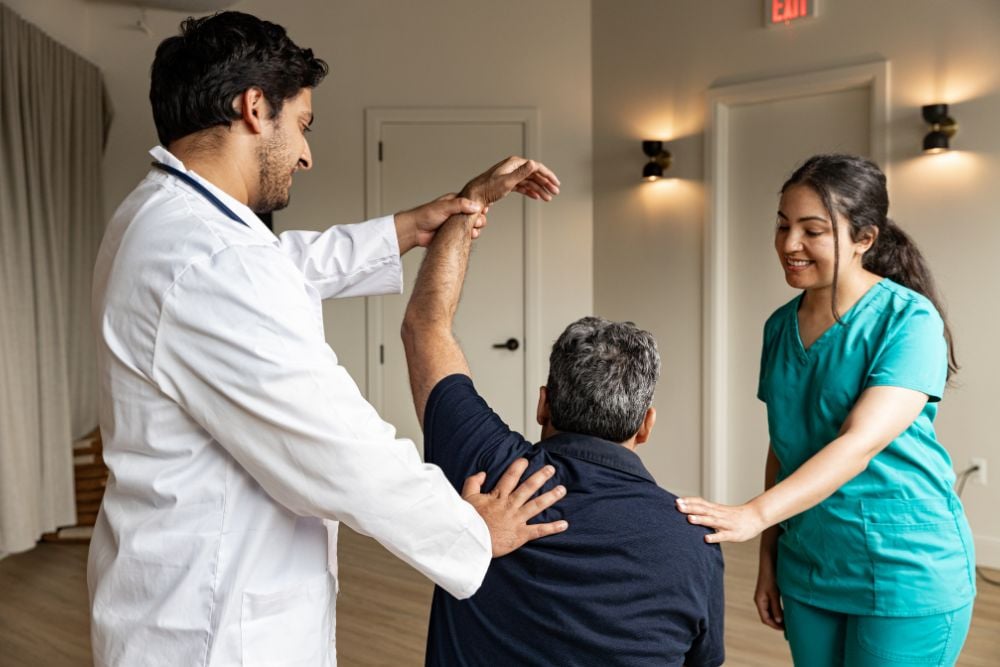
Dealing with joint or muscle discomfort can be worrying, and knowing when to see an orthopedic specialist is key to getting the right treatment and recovering effectively. Orthopedic doctors specialize in diagnosing and treating conditions of the bones, joints, muscles, ligaments, and tendons, helping patients restore mobility, alleviate pain, and enhance their overall quality of life. Recognizing the signs of persistent issues and common orthopedic conditions can help you make informed healthcare choices, leading to a healthier, more active, and fulfilling life.
Chronic Pain vs. Acute Injuries
Pain serves as the body's alert system, signaling that something may be wrong. Acute pain arises suddenly, often due to a specific injury or incident, and is usually sharp in nature. This type of pain is often associated with signs such as:
- Sudden, severe pain
- Swelling and/or bruising
- Trouble putting weight on weight on a leg, knee, ankle, or foot
- A bone or joint that is visibly out of place
Acute injuries generally subside as the underlying cause heals. Examples include sprains, fractures, or dislocations.
In contrast, chronic pain persists for extended periods, often exceeding six months, and may not be linked to a specific injury. This type of pain can fluctuate, sometimes worsening with activity or stress. While at rest, individuals with chronic pain may experience persistent discomfort, such as a dull ache or stiffness, and in some cases, swelling. If left untreated, chronic pain can lead to limitations in daily activities and progressively worsen over time.
Signs Your Joint Pain Isn’t Just Temporary
While occasional joint discomfort can result from overuse or minor injuries, certain indicators suggest that the pain may be more serious and warrant professional evaluation:
- Pain that won’t go away: If pain persists for more than a few weeks without improvement
- Trouble with daily tasks: Experiencing pain that interferes with routine tasks such as walking, climbing stairs, or dressing
- Limited range of motion: Stiffness or inability to move a joint through its full range of motion
- Visible changes: Noticeable changes in joint appearance, significant swelling, or redness
Common Conditions That Require Orthopedic Care
Many joint and musculoskeletal issues stem from underlying conditions. Addressing these concerns early can prevent further complications, alleviate pain, and improve mobility. Here are some of the most common conditions that may require orthopedic attention:
- Arthritis: Inflammation of the joints causing pain, swelling, and stiffness. Osteoarthritis and rheumatoid arthritis are common types that can significantly impact quality of life.
- Tendonitis: Inflammation of tendons, often resulting from overuse, leading to pain and tenderness around joints.
- Bursitis: Inflammation of the bursae, the small sacs cushioning joints, causing pain and swelling. Frequently seen in the knee or shoulder joints.
- Carpal Tunnel Syndrome: Compression of the median nerve in the wrist, causing numbness, tingling, and weakness in the hand.
Start Your Journey to Pain-Free Living Today
If you're experiencing persistent pain, discomfort affecting your daily life, or any of the symptoms mentioned above, it's important to consult an orthopedic specialist. Early diagnosis and intervention can prevent further deterioration and facilitate a quicker return to normal activities.
At The Orthopedic Health Center, our team of experienced professionals is dedicated to providing personalized orthopedic care for a wide range of musculoskeletal conditions. With convenient locations in Hoboken, Jersey City, and Bayonne, NJ, we are committed to helping you achieve optimal health and mobility. Contact us today to schedule an appointment and take the first step toward a pain-free life.
Appointments available now.
